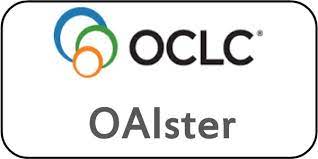Open Access Policy
Open Access Policy
We are committed to providing open access to scholarly research, and we are pleased to announce our open access policy for Asian Journal of Diabetology.
All articles published in Asian Journal of Diabetology will be freely available online, ensuring that readers worldwide have access to the latest research in the field. This policy will increase the visibility and impact of your research, as well as benefit the broader research community.
There are no article processing charge (APC) upon acceptance of their manuscript.
We believe that open access is essential for the dissemination of knowledge and the advancement of research, and we are excited to be at the forefront of this movement. We look forward to publishing your work in [Asian Journal of Diabetology and contributing to the global research community.
Please feel free to contact us if you have any questions or concerns about our open access policy.
Copyrights
We are pleased to announce that our journal, Asian Journal of Diabetology, is adopting the Creative Commons Attribution 4.0 International (CC BY 4.0) license for all articles published in the journal, which allows authors to retain the copyright of their articles.
We believe that this policy aligns with our commitment to open access and supports the interests of our authors. By retaining the copyright to your work, you have greater control over its use and dissemination, which can benefit your career and the broader scholarly community.
The CC BY 4.0 license allows readers to share and adapt your work for any purpose, including commercial use, as long as they give appropriate credit to the original source. This license aligns with our commitment to open access and ensures that your research reaches the widest possible audience.
We believe that open access publishing and the use of open licenses like CC BY 4.0 are essential for the advancement of research and the dissemination of knowledge. By adopting this license, we are contributing to a global movement towards more open and transparent research practices.
We ask that authors agree to this license when submitting their manuscript for consideration. This license will apply to the final published version of your article.
If you have any questions or concerns about the CC BY 4.0 license or our open access policy, please do not hesitate to contact us.
Peer Review Policy
We are committed to ensuring the highest standards of quality and fairness in the review process for our journal, Asian Journal of Diabetology. Therefore, we have implemented a double-blind peer review policy for all submissions.
This means that the identity of the authors is concealed from the reviewers, and the identity of the reviewers is concealed from the authors. We believe that this approach ensures that the review process is fair and unbiased and that manuscripts are evaluated solely on their academic merit.
During the review process, all manuscripts are assessed by at least two independent reviewers who are experts in the relevant field. The reviewers provide feedback on the scientific content, the methodology, the quality of the writing, and the potential impact of the research.
Once the review process is complete, the authors will receive detailed feedback on their manuscript, including any suggested revisions. We strive to provide constructive feedback to help authors improve their work and increase its impact.
We believe that our double-blind peer review policy ensures that our journal publishes high-quality, original research that contributes to the advancement of knowledge in the field. If you have any questions or concerns about our review process or policies, please do not hesitate to contact us.
plagiarism
We take plagiarism very seriously and have strict policies in place to ensure that all published articles in our journal, Asian Journal of Diabetology, are original and free from any form of plagiarism.
Plagiarism includes but is not limited to presenting someone else's work as your own, using another author's words, ideas, or data without proper attribution or permission, and self-plagiarism, which is reusing significant portions of your own work without appropriate citation.
To prevent plagiarism, all submitted manuscripts undergo a plagiarism check using plagiarism detection software before they are sent for peer review. If any instances of plagiarism are detected, the manuscript will be returned to the authors for revision, and appropriate action will be taken, which may include rejection of the manuscript or a ban on future submissions.
We expect all authors to adhere to the highest ethical standards in their research and writing and to ensure that their work is free from any form of plagiarism. Authors must properly attribute and cite all sources used in their research, and they should not submit manuscripts that have been previously published or are under consideration for publication elsewhere.
We believe that our plagiarism policy helps maintain the integrity of our journal and ensures that our readers can trust the accuracy and originality of the articles we publish. If you have any questions or concerns about our plagiarism policy or any other aspect of our journal, please do not hesitate to contact us.
Archive
We at Asian Journal of Diabetology are committed to ensuring the long-term preservation and accessibility of the scholarly content we publish. As part of this commitment, we have implemented a preservation policy using the PKP Preservation Network (PN).
The PKP PN is a global preservation network that ensures that digital content is preserved in a secure and sustainable manner. Our journal is a member of the PKP PN and has implemented preservation measures to ensure that all articles published in our journal are preserved in a trusted digital repository.
We use the CLOCKSS (Controlled Lots of Copies Keep Stuff Safe) digital preservation archive as our designated preservation repository. CLOCKSS is a not-for-profit, open-source digital preservation archive that provides a geographically distributed preservation network to ensure that content is preserved for the long-term.
The PKP PN and CLOCKSS provide an additional layer of assurance that our journal's content will remain available and accessible for future generations. In the unlikely event that our journal is no longer able to maintain access to its content, CLOCKSS will ensure continued access to the preserved content through a distributed network of global libraries.
We believe that our preservation policy using the PKP PN and CLOCKSS provides a reliable, long-term solution for the preservation and accessibility of our scholarly content. If you have any questions or concerns about our preservation policy or any other aspect of our journal, please do not hesitate to contact us.





